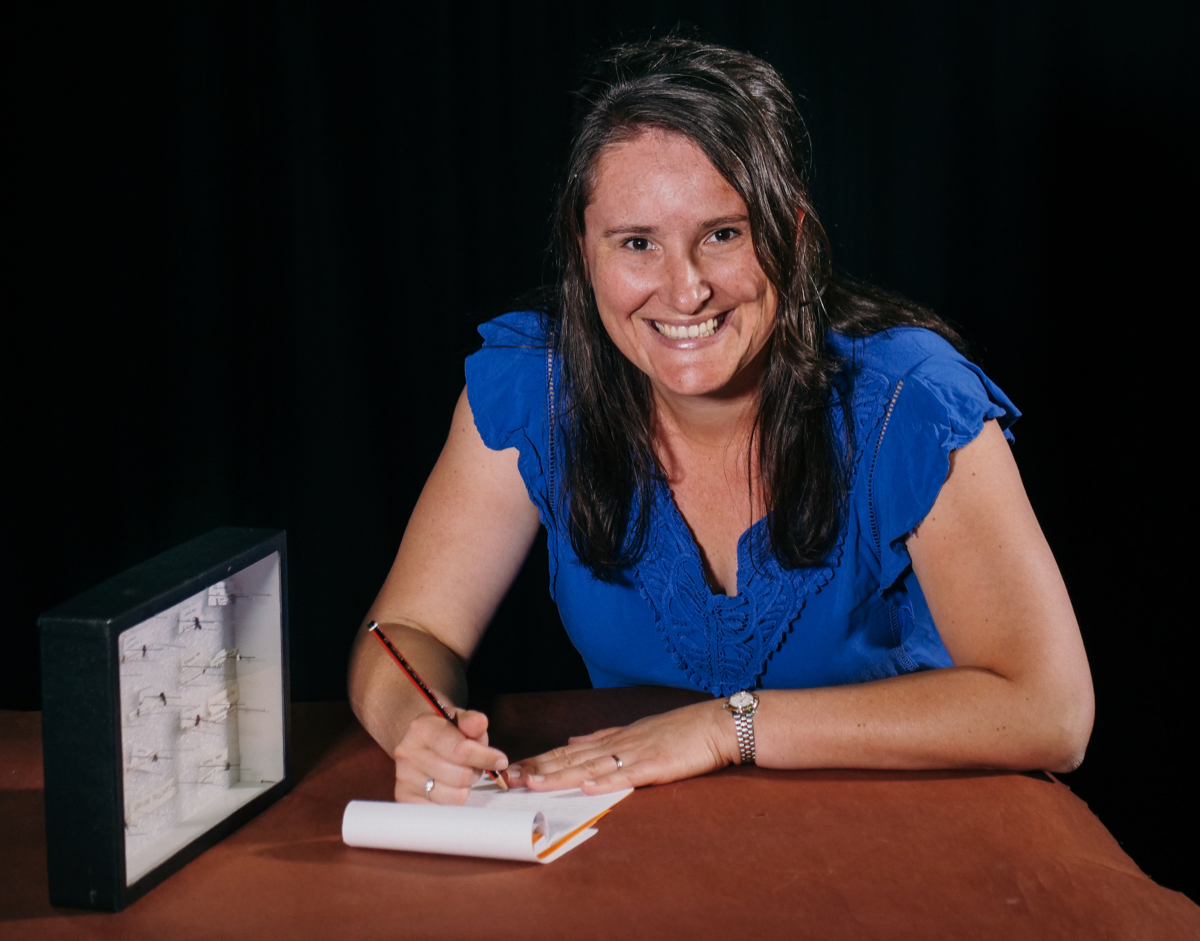Insectageddon! The planet’s insects are heading for extinction! Ecosystems are collapsing!
The headlines are alarming, and increasing, but Dr Manu Saunders, a University of New England ecologist, is wary of the “insect apocalypse” theory.
As someone whose meandering path to an ecology doctorate included an Arts degree (part of an ambition to become a journalist that has been transmuted to blogging), Manu recognises the over-simplifications of journalism when she sees them.
And as an ecologist, she also knows something of insects, which have become her specialist area of study.
There is ample cause for concern over the collapse of ecosystems, Manu agrees: the evidence of their disintegration is all around us. But “the world’s insects are hurtling down the path to extinction”? She’s not so sure about that.
To start with, about 80% of the world’s 5.5 million (or so) insect species haven’t been identified.
Within this yawning data gap, studies used to flag “insectageddon” inevitably have other data gaps.
Of a new paper that argues that 40% of insects are facing extinction, Manu observes: “Nearly all the data is from western Europe and the US, a lot from anecdotal or limited observations, and there are numerous insect groups — most flies, beetles, crickets, termites, fleas, ants and more — for which there is no long-term data available”.
“Media often over-hype things, but the ‘insect Armageddon’ narrative has been promoted by scientists as well, even though there is very little available evidence to support this story.”
“Insect population declines are really concerning, and maybe people act in good faith, thinking that they need the world to take notice. It might stem from the fact that insects haven't got a lot of positive attention, in popular culture or from research and funding bodies, for a long time.”
“We don’t want insects to die off, obviously, but there’s not yet enough evidence to say that’s happening. I don’t think hype is the right way to get attention. We need to assemble our evidence.”
For all its frustrations, the ‘insectageddon’ debate has united Manu, writer, and Dr Saunders, scientist, via her blog, Ecology Is Not A Dirty Word.
Through high school and her early university years in Queensland, Manu never envisaged a future in science.
“I love nature, but I was never taught that nature could be approached through science,” she recalls. “I wanted to be a writer or historian or journalist.”
Her path to ecology was indirect. There was an Arts degree. There was time as a governess on a central Queensland cattle station, where the landscape provoked a revelation about her love of nature and her desire to understand and protect it from human carelessness.
There was the Science degree, undertaken with the idea of becoming a park ranger, but ultimately shaped by short-term jobs that happened to revolve around insect research. And there was the doctorate, on wild pollinators in almond orchards, which consolidated her direction and commitment.
“There was a point at which I thought, okay, here’s something I can contribute to that I never considered as a career until now. I love research. I love insects. And there's clearly all these questions to be answered.”
Insects might be “the little things that run the world”, as biologist E.O. Wilson has said, but they are also somewhat mysterious.
“I began to realise how little is actually known about so many insects and their functional role in our ecosystems. It began to dawn on me that this is clearly something that we need to be looking into.”
Ecology is a science that considers the relationship between things, more so than the things themselves. “I see it as a way to actually understand how the world works, and through that understanding save the world from further degradation — which we all want to do something about”.
It’s a lens that Manu wants to apply to the question of sustainable agriculture.
“Obviously food security is huge issue, and how we make agriculture sustainable at a global scale is a daunting but essential question — because the way we undertake agriculture now drives many of the ecological problems we have.
“This concept of ‘ecosystem services’, the free benefits we gain from properly-functioning ecosystems, is a newish idea but it has the ability to change everything. It’s not just a fluffy academic notion: it’s how the world works, and it needs a lot more acceptance in politics and society.”
Manu is currently mapping some of the gaping holes in our fragile web of knowledge around insects. Until we start to repair those holes, she says, our understanding of insect populations, their ecology, and their contributions to tangible ecosystem services will always be prone to error.
“Moving on from individual species, or charismatic groups like bees, we need to understand how communities of insects interact across landscapes. Only when we better understand their role in delivering the benefits we take for granted, like clean air, potable water, food production, and beautiful landscapes, will we start properly accounting for how essential insects are to keep our ecosystems functioning.”


